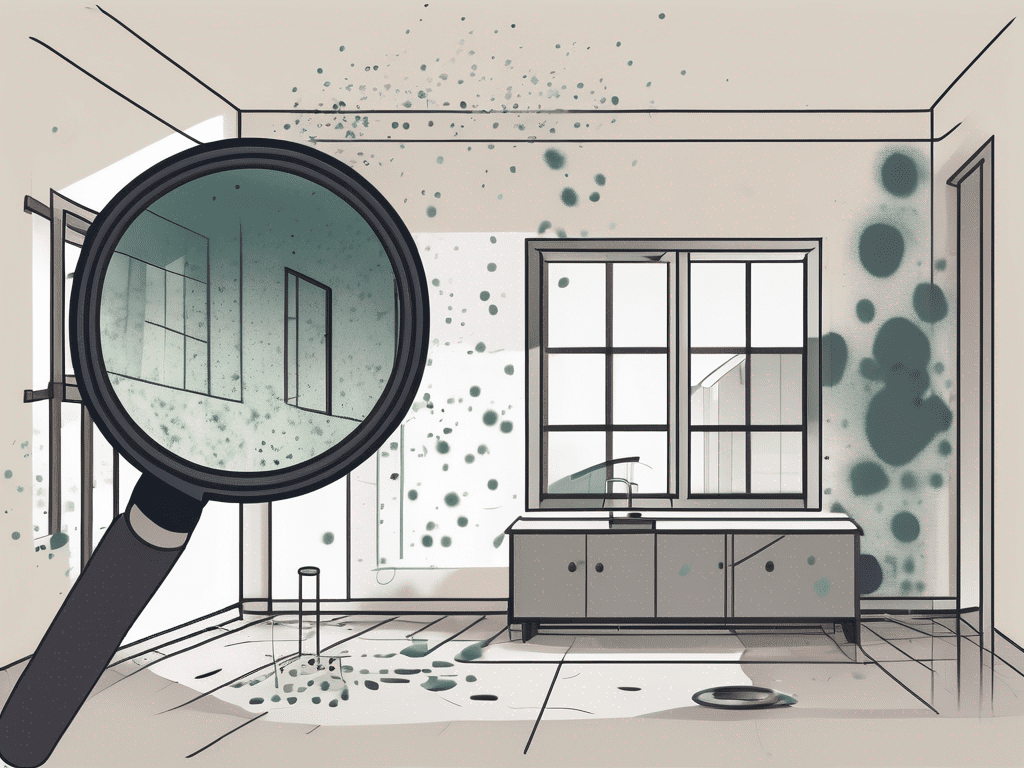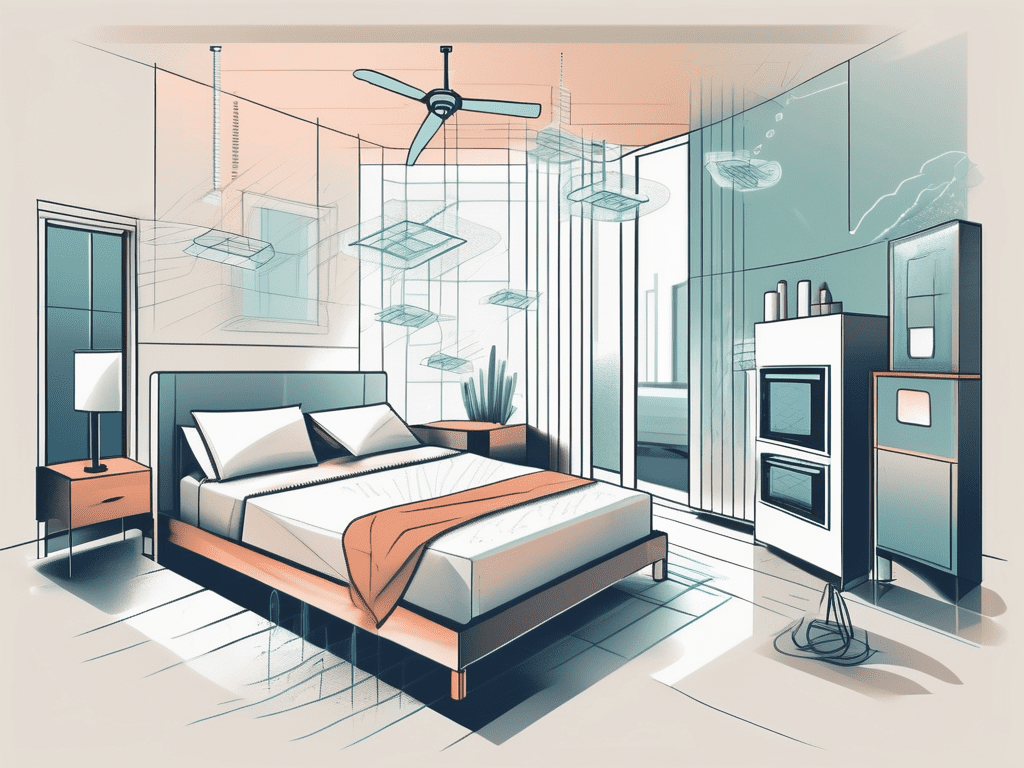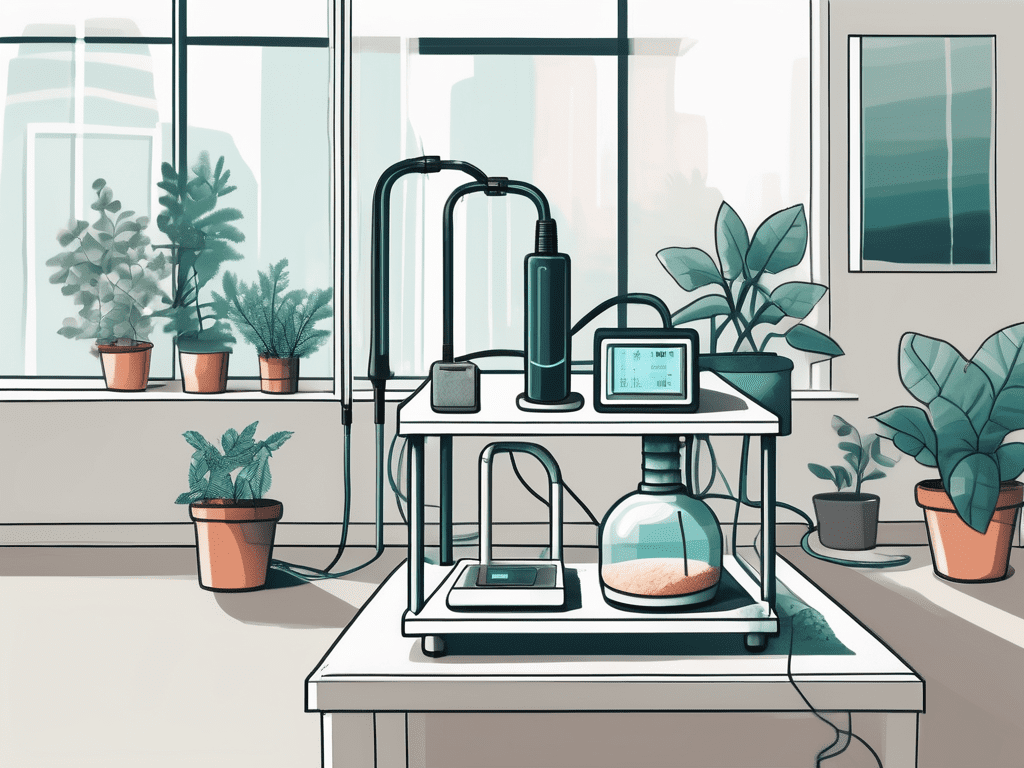Mold is a common problem that many homeowners face. It not only poses a threat to the structural integrity of a property but also to the health of its occupants. Understanding the importance of mold air testing is crucial in order to maintain a safe and healthy living environment. By regularly testing for mold in the air, homeowners can effectively prevent health issues and maintain the overall quality of indoor air.
Understanding Mold: An Overview
Before delving into the importance of mold air testing, it is essential to have a basic understanding of mold itself. Mold is a type of fungus that thrives in moist and dark environments. It reproduces by releasing spores into the air, which can easily spread and cause contamination. There are various types of mold that can be commonly found in homes.
Mold plays a crucial role in the environment by breaking down organic matter, but when it infiltrates indoor spaces, it can pose serious health risks to occupants. Identifying the presence of mold early on is key to preventing its harmful effects and ensuring a safe living environment for you and your loved ones.
Types of Mold Commonly Found in Homes
One of the most common types of mold found in homes is Stachybotrys chartarum, commonly known as black mold. This type of mold can produce toxins that have been linked to severe health issues. Another common type is Aspergillus, which can cause respiratory problems and allergic reactions. Cladosporium and Penicillium are also frequently found in indoor environments and can trigger allergies and asthma.
Mold spores are microscopic and can easily become airborne, allowing them to travel through the air and settle on various surfaces within your home. This is why thorough mold inspections and testing are crucial in identifying the types of mold present and determining the best course of action for remediation.
Health Risks Associated with Mold Exposure
Exposure to mold can lead to various health risks, especially for individuals with respiratory conditions or weakened immune systems. Common symptoms of mold exposure include allergic reactions, such as sneezing, coughing, and nasal congestion. Prolonged exposure to mold spores can also cause more severe health issues, such as respiratory infections and asthma attacks.
It is essential to address any signs of mold growth in your home promptly to safeguard your health and well-being. Seeking professional help for mold remediation can ensure that the affected areas are properly treated and prevent the recurrence of mold infestations in the future.
The Science Behind Mold Air Testing
Mold air testing is a scientific process that involves collecting air samples from different areas of a property and analyzing them for the presence of mold spores. This testing method helps in identifying and quantifying the types and levels of mold spores in the air. By understanding the science behind mold air testing, homeowners can make informed decisions regarding their indoor air quality.
One crucial aspect of mold air testing is understanding the conditions that promote mold growth. Mold spores are microscopic fungi that thrive in damp and humid environments. They can be found both indoors and outdoors, but indoor mold growth is a common concern due to the potential health risks associated with exposure to mold spores. Factors such as water leaks, high humidity levels, and poor ventilation can create ideal conditions for mold to flourish, making regular air testing essential for maintaining a healthy indoor environment.
How Mold Air Testing Works
Mold air testing is typically performed by trained professionals who use specialized equipment to collect air samples. These samples are then sent to a laboratory for analysis. The samples are examined under a microscope, where mold spores are identified and counted. The results of the testing provide valuable information about the extent of mold contamination in the air.
During the analysis process, the laboratory technicians not only identify the types of mold present but also assess the concentration levels of mold spores in the air. This quantitative data is crucial for determining the severity of the mold problem and guiding the development of an effective remediation plan. By pinpointing the specific types and quantities of mold spores present, professionals can tailor their approach to effectively mitigate the mold issue and prevent future growth.
Interpreting Mold Air Test Results
Interpreting mold air test results requires the expertise of professionals who can analyze the data and provide meaningful insights. The test results will indicate the types of mold present, the concentration levels, and whether they exceed acceptable limits. Based on the results, appropriate measures can be taken to address any mold-related issues in the property.
Furthermore, understanding the implications of mold air test results is essential for implementing long-term solutions to prevent mold recurrence. By addressing underlying moisture issues, improving ventilation, and maintaining proper indoor humidity levels, homeowners can create an environment that is less conducive to mold growth, ultimately safeguarding their property and the health of its occupants.
The Importance of Regular Mold Air Testing
Regular mold air testing is essential for maintaining a healthy living environment. By identifying and addressing mold issues early on, homeowners can prevent the development of severe health concerns and costly property damage.
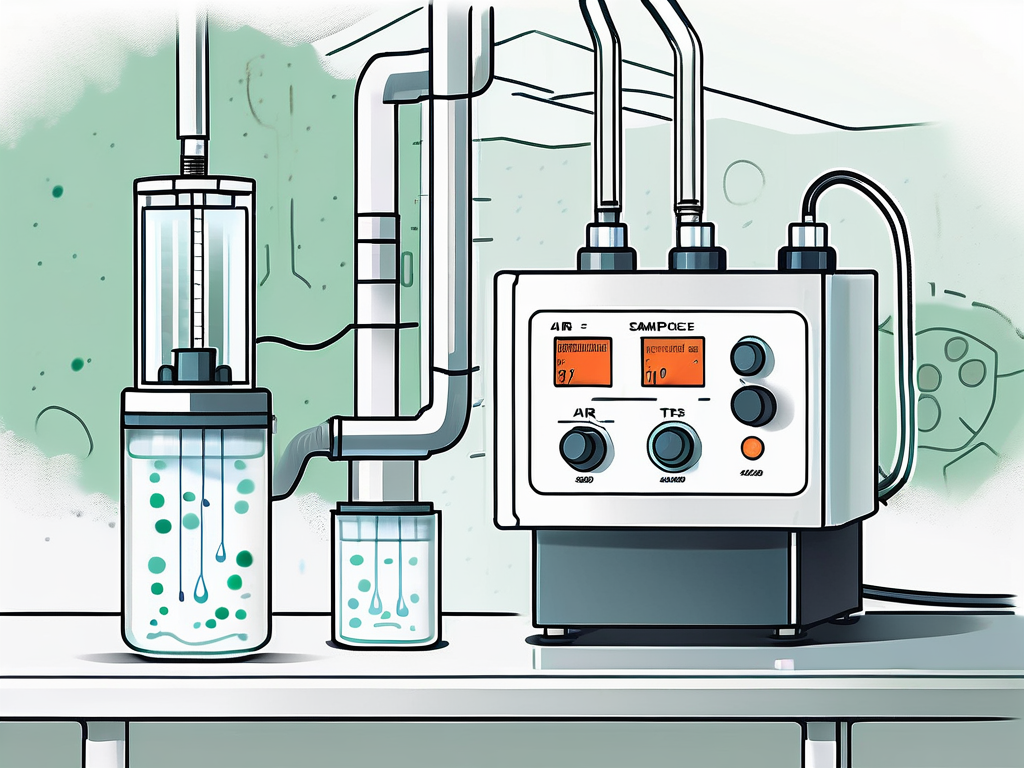
When it comes to mold, prevention is key. Regular mold air testing allows homeowners to stay ahead of any potential issues and take proactive measures to keep their living spaces safe and healthy. Mold can often go undetected, hiding in walls, ceilings, or ventilation systems, and spreading silently. By conducting routine air tests, homeowners can catch mold growth early and prevent it from becoming a larger, more expensive problem.
Preventing Mold-Related Health Issues
One of the primary benefits of regular mold air testing is the prevention of mold-related health issues. By detecting and eliminating mold in the air, homeowners can reduce the risk of respiratory problems, allergies, and other health conditions associated with mold exposure.
Mold exposure can have serious consequences on human health, especially for individuals with respiratory conditions or weakened immune systems. Regular mold air testing provides peace of mind by ensuring that the air you and your loved ones breathe is free from harmful mold spores. By investing in proactive testing, homeowners can safeguard their health and well-being.
Maintaining Indoor Air Quality
In addition to health benefits, regular mold air testing helps in maintaining overall indoor air quality. Mold spores can not only cause immediate health issues but can also compromise the air quality in the long run. By monitoring and controlling mold levels, homeowners can ensure that their indoor environment remains safe and pleasant.
Indoor air quality is a crucial factor in creating a comfortable and healthy home environment. Mold growth can not only affect the respiratory health of occupants but also contribute to unpleasant odors and musty smells. Through regular mold air testing, homeowners can uphold high indoor air quality standards and enjoy a fresh, clean living space free from the harmful effects of mold contamination.
When and Why You Should Consider Mold Air Testing
Knowing when and why to consider mold air testing is essential for proactive mold management. By understanding the signs that indicate the need for testing, homeowners can take the necessary steps to protect their property and their health.
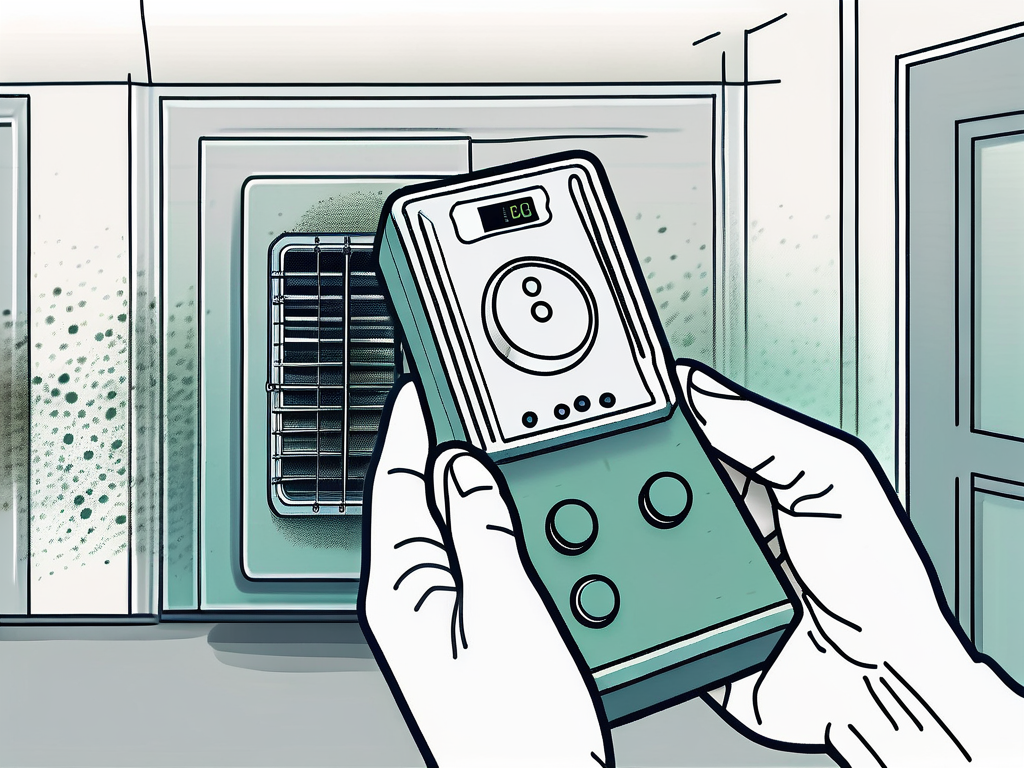
Signs You May Need a Mold Air Test
There are several signs that may indicate the need for mold air testing. These include musty odors, visible mold growth, frequent respiratory symptoms, unexplained allergy-like symptoms, and water damage or leaks in the property. If any of these signs are present, it is important to consider mold air testing to assess the extent of the problem.
The Role of Mold Air Testing in Home Maintenance
Mold air testing plays a crucial role in home maintenance. By incorporating regular mold testing as part of a property maintenance plan, homeowners can ensure that any mold-related issues are addressed promptly. This proactive approach helps in avoiding extensive damage and costly repairs in the long run.
Choosing a Professional Mold Air Testing Service
When opting for mold air testing, it is important to choose a reputable and professional service provider. An experienced and qualified testing service will ensure accurate results and provide expert guidance on mold remediation if necessary.
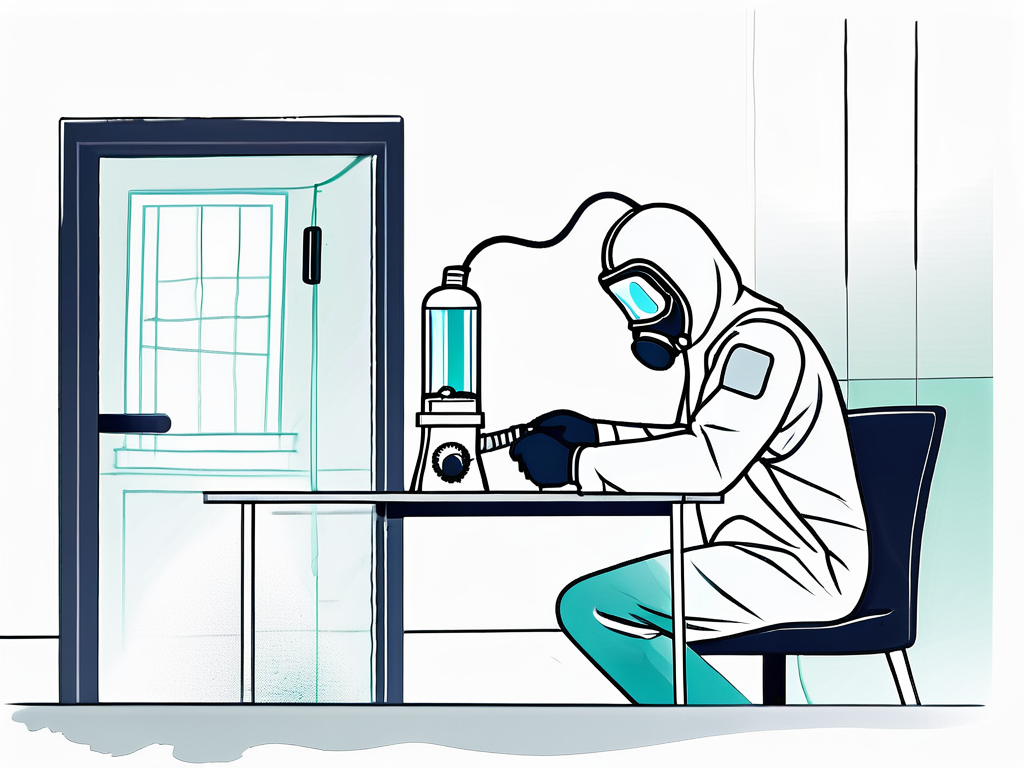
What to Look for in a Mold Air Testing Service
When selecting a mold air testing service, consider factors such as their certifications and expertise in the field. Look for service providers who follow recognized testing protocols and have a good reputation among previous clients. It is also important to ensure that the service includes a detailed analysis of the test results and provides recommendations for remediation, if required.
Questions to Ask Your Mold Air Testing Professional
Before hiring a mold air testing professional, it is recommended to ask them a few important questions. Inquire about their qualifications, the testing methods they use, the turnaround time for receiving results, and their approach to mold remediation, if needed. By asking these questions, homeowners can make an informed decision regarding the selection of the testing service provider.
In conclusion, mold air testing is of utmost importance for homeowners to ensure a safe and healthy living environment. By understanding mold, the science behind testing, and the health risks associated with exposure, homeowners can make informed decisions to maintain their indoor air quality. Regular mold air testing, coupled with proactive mold management, helps in preventing health issues and preserving the integrity of the property. When considering mold air testing, it is essential to choose a professional service provider who follows recognized protocols and can provide accurate results and effective solutions if remediation is necessary.
